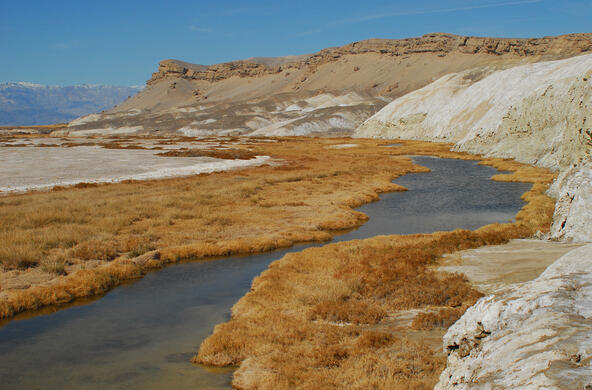A group of concerned ecologists at Cary Institute of Ecosystem Studies have found that rising temperatures and antibiotics that are used in livestock production could disturb soil microbial balance and increase carbon emission.
Soils play a key role in the regulation of climate. They provide a home to assorted communities of microbes, which help to cycle nutrients and control carbon release. Much of the Earth’s carbon stores are in soils, but this new study suggests more of that may be released if caution is not exercised.
Scientists led by community ecologist Jane Lucas examined the combined effects of a common cattle antibiotic and rising heat levels on microbes in the soil. They observed that these factors degrade soil microbe efficiency while also reducing soil’s resilience to future stress and capacity to trap carbon.
“Our results show that heat alone, antibiotics alone, and heat and antibiotics together all have different effects on soil microbial communities,” said Michael Strickland, the study’s senior author. “These findings highlight the importance of testing multiple stressors simultaneously to more fully understand how our soils, and the essential functions they perform, are changing.”
The research appeared in the journal Soil Biology and Biochemistry: Antibiotics and temperature interact to disrupt soil communities and nutrient cycling.
Upsetting microbial communities
For this study, Lucas and her colleagues collected prairie soil samples from preserved northern Idaho land that was not grazed by livestock and lacked cattle waste. They treated these to high or low antibiotic doses and diverse levels of temperature (15, 20, and 30 degrees Celsius).
The antibiotic selected for this research was monensin. It is popular among farmers partly because it is cheap and easy to administer without expert help. However, it is poorly metabolized and much of it remains biologically active in animal waste.
Researchers let the treated samples incubate for 21 days. They observed soil respiration, microbial community makeup, and carbon cycling, among others.
The number of microbes dropped, as did overall microbial diversity, due to antibiotic and rising heat exposure. The population of bacteria reduced while that of fungi rose.
Singly, the antibiotic lessened microbial efficiency and increased the amount of bioavailable carbon. Higher heat levels alone caused a surge in soil respiration and dissolved organic carbon (DOC).
It is normal for soil to give off carbon. But the amount emitted is much higher with exposure to antibiotics and heat.
“We saw real changes in soil microbe communities in both the low and high-dose additions. Rising temperature exacerbated these antibiotic effects, with distinct microbial communities emerging at each temperature tested,” Lucas said. “Within these assemblages, we saw reduced diversity and fewer microorganisms overall. These changes could diminish soils’ resilience to future stress.”
Increased respiration implies that microbes must work harder than normal to survive when exposed to livestock antibiotics and greater heat.
Effect on climate
Perhaps, what is more concerning is how all this could impact the climate. Many countries are currently not doing enough to tackle climate change. Livestock antibiotics and high temperatures could worsen things further.
Reduced microbial efficiency that results from increased respiration can make soils store less carbon than they are otherwise capable of storing.
While microbes try to work extra hard to process carbon, they become less active at doing so. Microorganisms become less able to convert carbon into a stable form that can be easily stored in the soil. This causes more carbon dioxide to be emitted into the atmosphere, thereby worsening the climate change situation.
Lucas stated that understanding the effects of multiple stressors on soil microbial communities is vital for healthy soils. Without this, crop production and soil carbon storage capacity could suffer.
The findings also suggest a need to limit the amounts of antibiotics that get into the environment.







